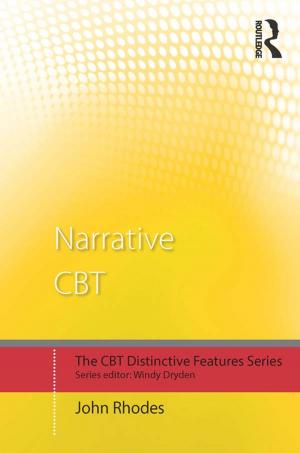Wilderness
Nonfiction, Social & Cultural Studies, Social Science, Human Geography, Science & Nature, Nature| Author: | Phillip Vannini, April Vannini | ISBN: | 9781317568278 |
| Publisher: | Taylor and Francis | Publication: | April 14, 2016 |
| Imprint: | Routledge | Language: | English |
| Author: | Phillip Vannini, April Vannini |
| ISBN: | 9781317568278 |
| Publisher: | Taylor and Francis |
| Publication: | April 14, 2016 |
| Imprint: | Routledge |
| Language: | English |
Wilderness provides a multidisciplinary introduction into the diverse ways in which we make sense of wilderness: how we conceptualise it, experience it, interact with, and imagine it. Drawing upon key theorists, philosophers, and researchers who have contributed important knowledge to the topic, this title argues for a relational and process based notion of the term and understands it as a keystone for the examination of issues from conservation to more-than-human relations.
The text is organized around themed chapters discussing the concept of wilderness and its place in the social imagination, wilderness regulation and management, access, travel and tourism, representation in media and arts, and the use of wilderness for education, exploration, play, and therapy, as well as its parcelling out in parks, reserves, or remote "wastelands". The book maps out the historical transformation of the idea of wilderness, highlighting its intersections with notions of nature and wildness and teasing out the implications of these links for theoretical debate. It offers boxes that showcase important recent case studies ranging from the development of adventure travel and eco-tourism to the practice of trekking to the changing role of technology use in the wild. Summaries of key points, further readings, Internet-based resources, short videos, and discussion questions allow readers to grasp the importance of wilderness to wider social, cultural, political, economic, historical and everyday processes.
Wilderness is designed for courses and modules on the subject at both postgraduate and undergraduate levels. The book will also assist professional geographers, sociologists, anthropologists, environmental and cultural studies scholars to engage with recent and important literature on this elusive concept.
Wilderness provides a multidisciplinary introduction into the diverse ways in which we make sense of wilderness: how we conceptualise it, experience it, interact with, and imagine it. Drawing upon key theorists, philosophers, and researchers who have contributed important knowledge to the topic, this title argues for a relational and process based notion of the term and understands it as a keystone for the examination of issues from conservation to more-than-human relations.
The text is organized around themed chapters discussing the concept of wilderness and its place in the social imagination, wilderness regulation and management, access, travel and tourism, representation in media and arts, and the use of wilderness for education, exploration, play, and therapy, as well as its parcelling out in parks, reserves, or remote "wastelands". The book maps out the historical transformation of the idea of wilderness, highlighting its intersections with notions of nature and wildness and teasing out the implications of these links for theoretical debate. It offers boxes that showcase important recent case studies ranging from the development of adventure travel and eco-tourism to the practice of trekking to the changing role of technology use in the wild. Summaries of key points, further readings, Internet-based resources, short videos, and discussion questions allow readers to grasp the importance of wilderness to wider social, cultural, political, economic, historical and everyday processes.
Wilderness is designed for courses and modules on the subject at both postgraduate and undergraduate levels. The book will also assist professional geographers, sociologists, anthropologists, environmental and cultural studies scholars to engage with recent and important literature on this elusive concept.















